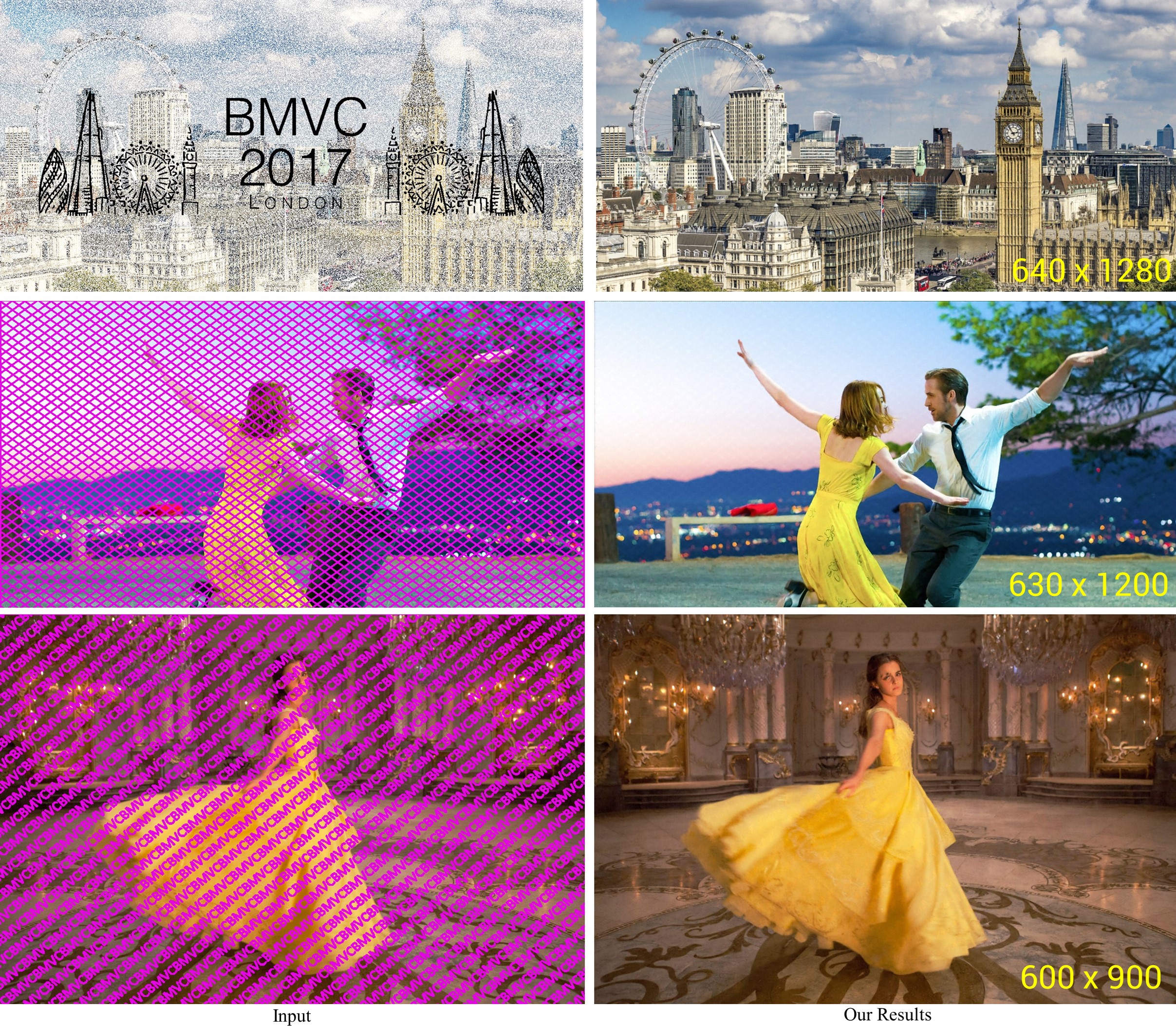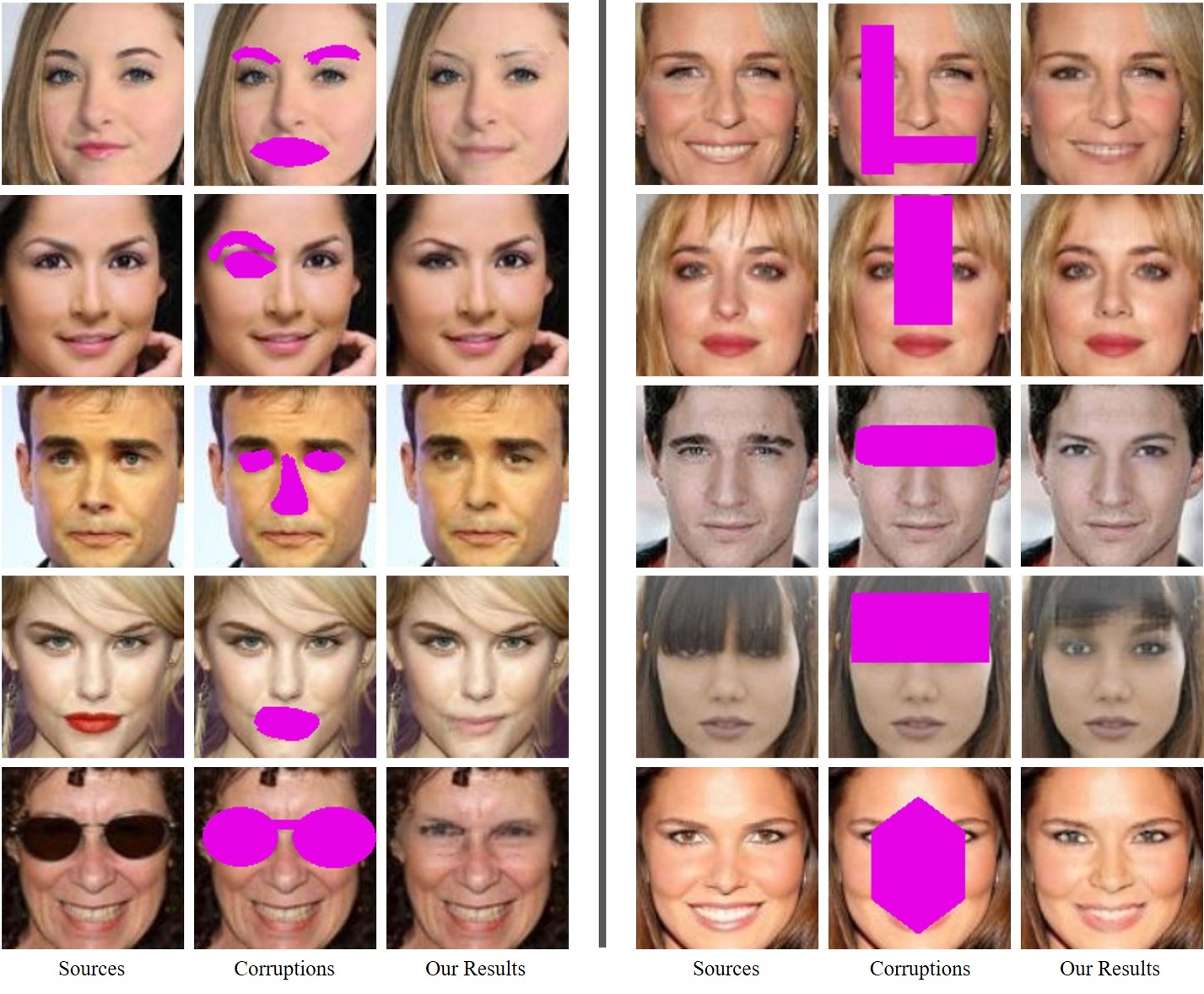These are the implementations and simple demo system of my bmvc'17 paper: General Deep Image Completion with Lightweight Conditional Generative Adversarial Network. [PDF][SUP]
The main goal of our paper is to build deep image completion models for recovering various corrupted images, including
- General Image Completion
The objective of this model is to complete images with differnet types of corrupted masks like scribbles, lines, dots and texts.
- Face Completion
This is an extension of our general image completion model that not only tackles the face completion task but also aiming on recovering faces with arbitrary missing regions. We apply a differnet but stronger deep autoencoder structure in this model.
TBA
We build a simple interactive demonstration of image completion based on Python, OpenCV and TensorFlow on Windows
- Install Visual Studio Code: A source code editor (Optional, but highly recommended)
- Follow the guidelines from TensorFlow to install Python 3.5.2 and TensorFlow on Windows
- Install libraries numpy and opencv-python through pip
- Download face-completion-model and general-completion-model. Put them into corresponding folders
- Run demo.py in general-image-completion or face-completion folder
If you fail to import tensorflow, please refer to this article for possible solutions.
- Moving mouse to draw scribbles on given images
- Key c: convert corrupted images to completed images
- Key r: resume any scribbles
- Key n: next image
@inproceedings{tseng17general-deep,
author = {Ching-Wei Tseng and Hung-Jin Lin and Shang-Hong Lai},
booktitle = {Proceedings of the British Machine Vision Conference ({BMVC})},
title = {General Deep Image Completion with Lightweight Conditional Generative Adversarial Networks},
year = {2017}
}

